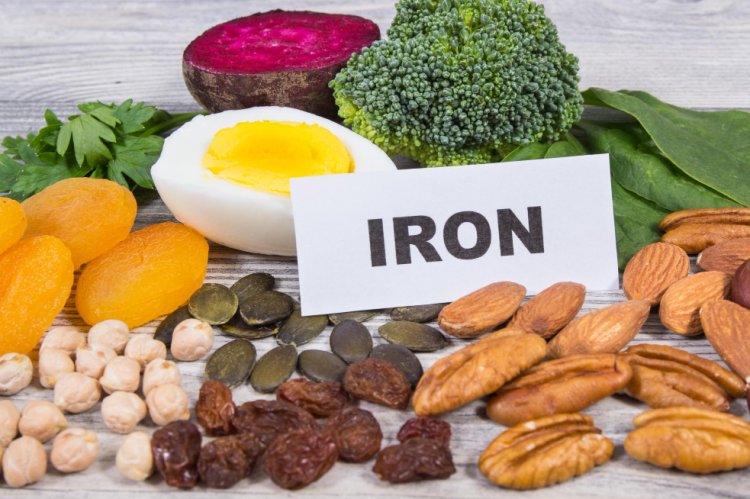Exploring Iron Deficiency: Symptoms, Solutions, and Prevention Techniques
Iron deficiency is a common nutritional disorder that affects millions of people worldwide. This condition occurs when the body lacks a sufficient amount of iron, an essential mineral necessary for various bodily functions. In this article, we will delve into the causes, symptoms, diagnosis, treatment, and prevention strategies for iron deficiency.

What is Iron Deficiency?
Iron deficiency occurs when the body's iron stores become depleted, leading to a decrease in the production of red blood cells and hemoglobin. Hemoglobin is responsible for carrying oxygen from the lungs to the rest of the body. Without an adequate supply of iron, the body cannot produce enough hemoglobin, resulting in a condition known as iron deficiency anemia.
Causes of Iron Deficiency
Several factors can contribute to iron deficiency, including:
- Inadequate dietary intake of iron-rich foods such as red meat, poultry, fish, beans, lentils, and fortified cereals.
- Blood loss due to menstruation, gastrointestinal bleeding, or frequent blood donation.
- Increased iron requirements during periods of rapid growth, such as pregnancy, infancy, and adolescence.
- Poor iron absorption due to gastrointestinal disorders like celiac disease or inflammatory bowel disease.
Symptoms of Iron Deficiency
Iron deficiency can manifest with a variety of symptoms, which may include:
- Fatigue and weakness
- Pale skin and mucous membranes
- Shortness of breath
- Dizziness or lightheadedness
- Cold hands and feet
- Brittle nails
- Headaches
- Rapid heartbeat (tachycardia)
- Restless legs syndrome
Diagnosis
Iron deficiency is typically diagnosed through a combination of medical history, physical examination, and laboratory tests. Blood tests such as serum ferritin, hemoglobin, and transferrin saturation levels help confirm the diagnosis and assess the severity of the deficiency.
Treatment
Treatment for iron deficiency aims to replenish iron stores and restore normal hemoglobin levels. It may include:
- Iron supplementation
- Dietary changes
- Vitamin C supplementation
- Intravenous iron therapy
Prevention
Preventing iron deficiency involves adopting healthy lifestyle habits and dietary practices, including:
- Eating a balanced diet rich in iron-containing foods.
- Incorporating vitamin C-rich foods into meals to enhance iron absorption.
- Avoiding excessive consumption of tea and coffee, as they can inhibit iron absorption.
- Managing menstruation by maintaining good menstrual hygiene and considering iron supplementation during heavy periods.
In conclusion, iron deficiency is a common nutritional disorder that can have significant consequences if left untreated. Recognizing the symptoms, seeking timely medical evaluation, and implementing appropriate treatment and preventive measures are essential for managing this condition effectively. By understanding the causes, symptoms, diagnosis, treatment, and prevention of iron deficiency, individuals can take proactive steps to maintain optimal iron levels and promote overall health and well-being.
#IronDeficiency #AnemiaAwareness #NutritionalHealth #IronRichFoods #HealthyLiving #PreventiveHealth #IronSupplements #DietaryTips #HealthEducation #WellnessJourney #HolisticHealth #HealthyEating #NutritionTips #MedicalKnowledge #HealthAwareness #StayHealthy #IronLevels #HealthyLifestyle #BloodHealth #HealthCareTips #WellnessWednesday #HealthyHabits #IronAbsorption #VitaminC #BloodHealthAwareness
Disclaimer:
The information provided in this article is for educational purposes only and should not be considered medical advice. If you have any health concerns or are experiencing symptoms, it is important to consult with a healthcare professional, such as a doctor or clinic, for proper diagnosis and treatment. Always seek the advice of your doctor or other qualified health provider with any questions you may have regarding a medical condition. Do not disregard professional medical advice or delay in seeking it because of something you have read in this article.
What's Your Reaction?





















